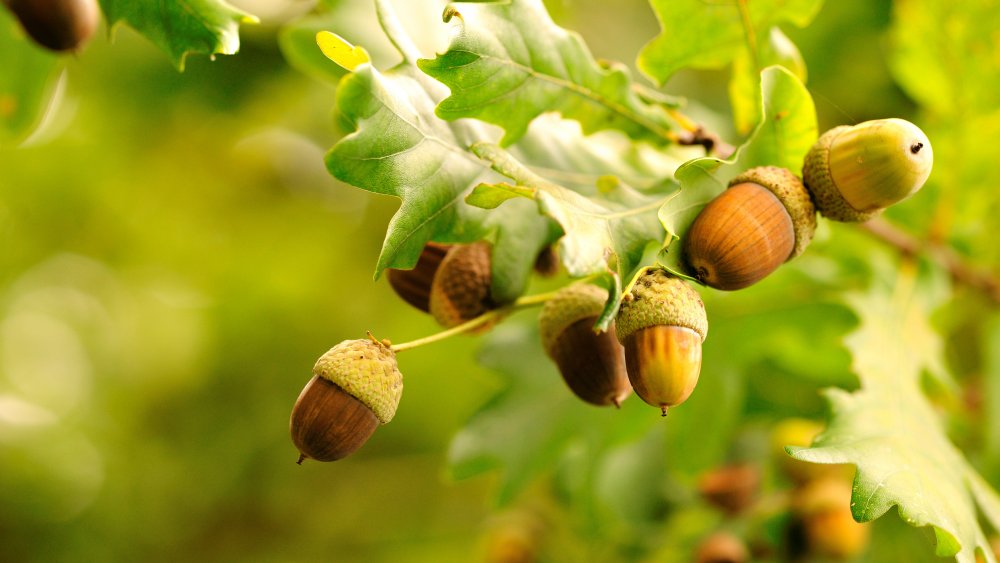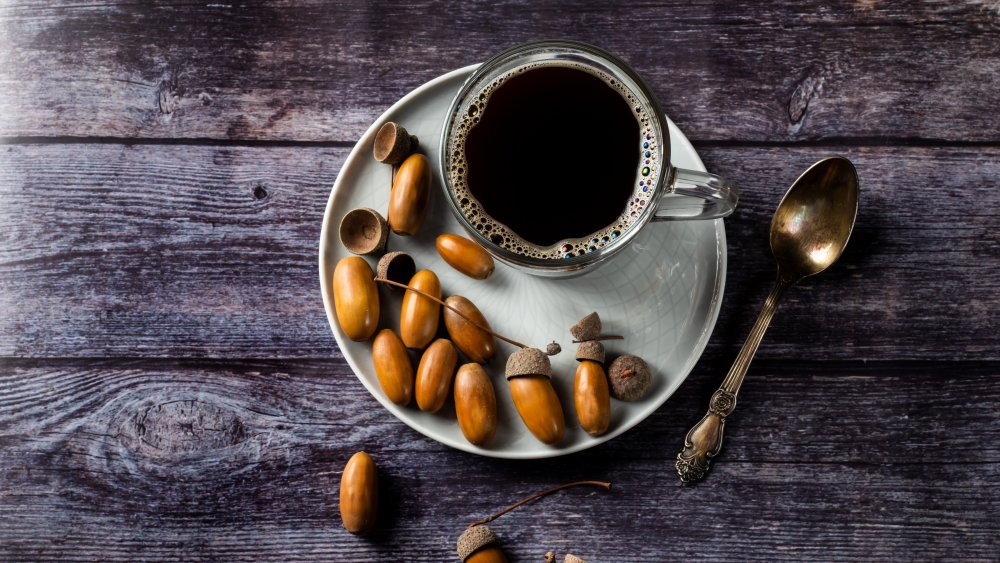The Real Reason You Should Start Eating Acorns
We should be eating acorns? Really? To answer your question: yes, they're edible. Acorns are tricky, though. Like rhubarb and cashews, acorns can be poisonous if they're consumed incorrectly (via Modern Farmer).
That doesn't mean you can't look at another acorn for the rest of your life, however. In fact, you should totally try them. Thankfully, it's simple to prepare acorns safely — soaking or boiling the acorns will rid them of any poisonous tannins. Once edible, acorns contain a slew of health benefits, including vitamin A, vitamin E, iron, and potassium according to Healthline.
It's a bit of a marvel. When they're not properly prepared, acorns can be toxic and bitterly unappetizing. On the other hand, they can be roasted, baked into candylike brittle, ground into flour, or, apparently, brewed into their own coffee, according to Woodland Trust.
Maybe it sounds new to you, but really, it's not a far cry from peanut butter, almond milk, or cheese made from cashews. And acorns have been consumed for centuries at least, and they still appear in the culinary world — particularly in California, where they have deep indigenous roots.
Acorns are a centuries-old staple
Bill Logan, an arborist, has studied the oak tree for quite some time — long enough to publish a book about it. He noticed that ancient Greek civilizations talked a lot about acorns, and might have stored them for consumption, according to NPR. Indigenous tribes in California have eaten them over thousands of years, according to ethnobotanist Kat Anderson (via Scientific American).
The nuts are still incorporated into recipes, both traditional and new. In Northern California, a group of Pomo and Miwok youth recently developed a snack — Acorn Bites — to utilize the nut's nutritional value (via Civil Eats).
And acorns are present in the upscale dining scene. In Berkley, Vincent Medina and Louis Trevino run mak-'amham, an organization that promotes and produces indigenous foods from the Ohlone people. Medina and Louis host a pop-up restaurant featuring locally sourced dishes. The menu? Among dandelion soup with duck fat and venison meatballs with huckleberry, there are acorns — a lot of acorns. The pop-up serves acorn bisque, acorn bread, and sweet acorn pancakes (via mak-'amham).
Sean Sherman, an Oglala Lakota chef in Minnesota, began learning to cook with acorns during a visit to California. His cookbook, The Sioux Chef, incorporates acorn into cookies, as well as into cakes with wild rice. He's continued to experiment with the nut, crafting sauces and crackers.
Needless to say, cracking the mystery of the acorn unlocks a world of culinary innovation.
And according to Sherman (via The Capital Times), when it comes to trees, "there's so much underutilized food."

